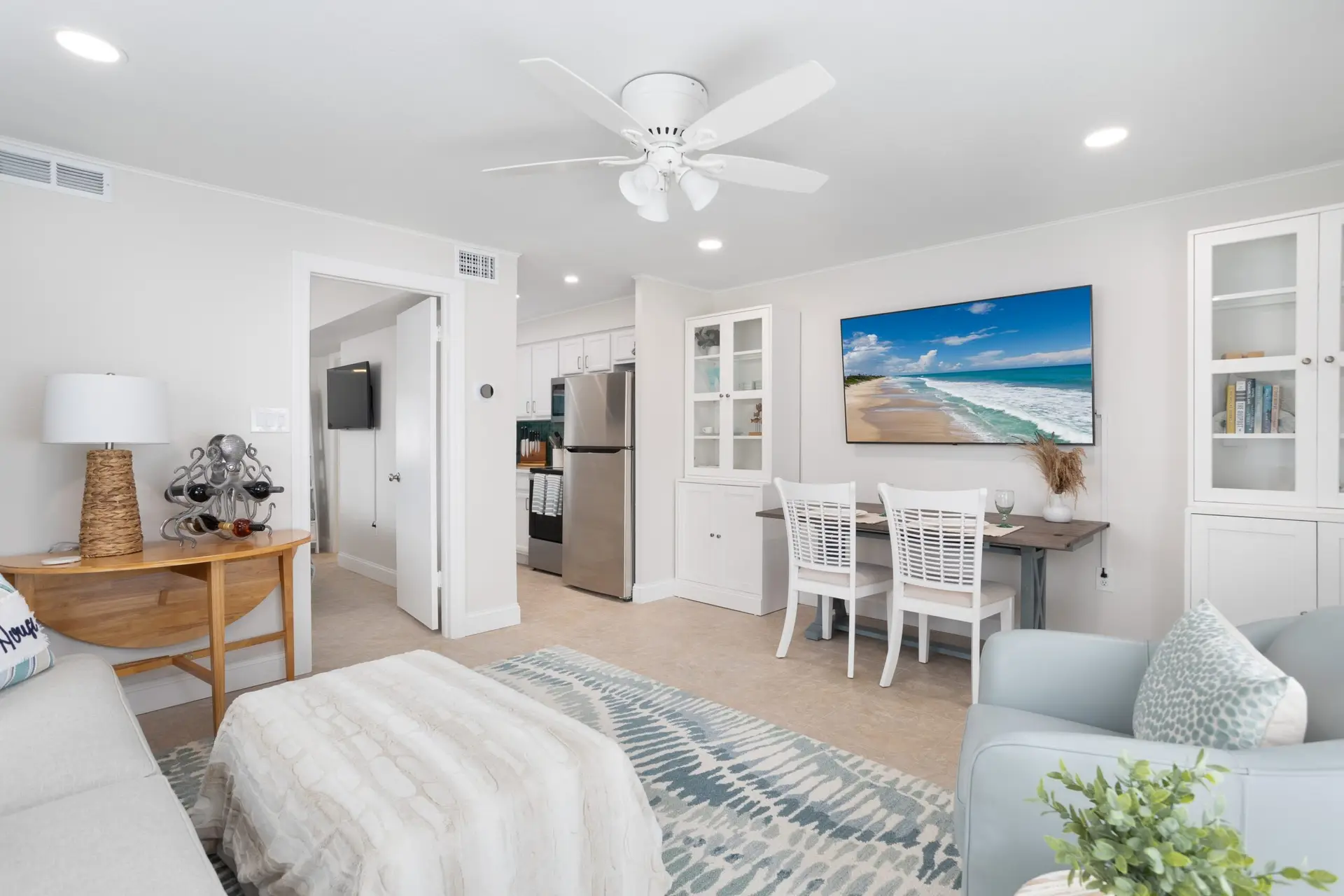Vacation rental platforms such as Airbnb and Vrbo have revolutionized the travel industry, offering unique accommodations and experiences to millions of travelers each year. As the popularity of these platforms continues to grow, understanding the liability associated with vacation rentals becomes increasingly important for guests. When legal issues arise, understanding renters’ rights can help guests advocate for their rights more effectively.
Airbnb Liability and Vrbo Liability Statistics
Vacation rental platforms such as Airbnb and Vrbo grew popular in the last decade, with hundreds of millions of bookings annually. Airbnb’s annual global revenue is approaching $10 billion. Of the travel websites and apps, Airbnb ranks third and fourth, respectively. Since its IPO in 2020, its growth has shown no sign of slowing. Airbnb’s valuation exceeds $73 billion.
Airbnb facilitates over 200 million bookings each year. While Airbnb claims that less than 0.1 percent of stays result in safety issues, this still translates into hundreds of thousands of incidents each year.
Unsurprisingly, many potential legal cases settle before going to court. Airbnb dedicates a special team to solving these issues and keeping the stories out of the public eye.
Notable cases include:
- Sexual assault and safety concerns: Airbnb has faced severe criticism and legal challenges due to safety incidents, such as the case where a woman was raped at knifepoint in an Airbnb rental. The company reportedly spent $7 million in a settlement with the victim to avoid public litigation. [previously cited]
- Carbon monoxide poisoning: Carbon monoxide poisoning has been a serious issue in vacation rentals. Since 2013, NBC News has linked carbon monoxide poisoning in Airbnb properties to at least 19 deaths. There have been multiple lawsuits related to these incidents.
- Fentanyl toxicity: A family sued Airbnb after their 19-month-old died from fentanyl toxicity during a stay. They claimed that Airbnb failed to maintain the property’s safety, bringing attention to the platform’s responsibility to verify the safety of its properties.
Airbnb spends approximately $50 million per year on payouts to hosts and guests. This includes significant sums for serious accidents, although most payouts are for smaller property damage claims under the host-guaranteed insurance program. The company maintains that payouts above $100,000 are rare. [previously cited]
Frequently Asked Questions About Vacation Rental Liability
The following are comprehensive answers to commonly asked questions about liability in vacation rentals. Understanding the various aspects can help guests protect themselves from potential risks and claim compensation for damages.
What Is Vacation Rental Liability?
Vacation rental liability refers to the hosts’ legal responsibilities for the property’s safety and condition. It encompasses injuries and property damage that may occur during the rentals.
Who Is Liable for Injuries in a Vacation Rental?
Liability for injuries in a vacation rental generally falls on the host if the injury was due to a hazardous condition the host knew or should have known about. Broken stairs, slippery floors, and faulty electrical systems are common causes of these injuries. Platforms provide Host Protection Insurance to cover these incidents.
What is Airbnb’s Liability for Guest Injuries?
Airbnb’s liability for guest injuries is typically covered under its Host Protection Insurance, which offers up to $1 million in liability insurance per Airbnb stay. This insurance covers third-party claims of bodily injury or property damage during a guest’s stay.
Is Airbnb Liable for Damages?
Airbnb can be held liable in certain situations, especially if their negligence, such as failing to enforce safety standards or not adequately addressing known hazards, contributes to guest injuries. Each case depends on specific circumstances and whether the injury resulted from a preventable situation that Airbnb could have mitigated through better policies or oversight.
What Protection Does Airbnb Offer Guests?
Airbnb offers several protections for guests, including its Host Protection Insurance, which covers third-liability claims up to $1 million.
Can I Claim Compensation from Airbnb?
Guests can claim compensation from Airbnb through its Host Protection Insurance if they can prove the host’s negligence led to their injury. This requires concrete evidence of the hazardous condition and the resulting injury.
Can I Sue an Airbnb Owner?
Guests may be able to sue an Airbnb host if they are injured due to the host’s negligence in maintaining a safe property. For example, scenarios where the host failed to repair known hazards or did not comply with local safety regulations can open the owner to liability lawsuits.
Should I Sue Airbnb or the Host?
Determining the liable party depends on the specifics of the case. Guests may need to sue the host for property-specific issues, but guests can include Airbnb if the platform is also negligent. Consulting with a vacation rental liability lawyer can help determine the best action.
Can I Sue Airbnb for Not Giving Me a Refund?
Guests can dispute non-refunds through Airbnb’s resolution center, but legal action may be necessary if the issue remains unresolved. This action requires proof that Airbnb violated its policies or terms of service.
Can I Sue an Airbnb Host for an Injury?
Guests may be able to sue a host if their injury results from the host’s failure to provide a safe environment, such as not fixing known hazards or violating safety codes.
What Happens if an Airbnb Guest Gets Robbed?
If the court attributes a robbery to inadequate security measures at an Airbnb, the guest can claim compensation from the host or Airbnb, depending on the circumstances. The guest must be able to prove specific instances of negligence on the part of the host or platform in order for their claim to succeed.
Can Guests Sue Vrbo?
Guests can sue Vrbo, particularly if they are injured due to the host’s negligence. They must prove that Vrbo failed to enforce safety standards or adequately address known hazards in the property.
What Is the Vrbo Liability for Guest Injuries?
Vrbo provides $1 million in liability insurance to cover guest injuries that occur during a stay. Such insurance handles third-party claims of bodily injury or property damage, similar to Airbnb’s protection plans.
Who Pays Damages on a Vrbo?
Damages on a Vrbo property are generally covered by the host’s insurance or Vrbo’s liability insurance, depending on the specifics of the incident and the insurance policies in place. The host’s homeowner’s insurance might also play a role if it covers short-term rentals.
What Are the Responsibilities of the Vrbo Owner?
Vrbo owners are responsible for maintaining a safe environment for their guests. This means addressing any potential hazards and complying with local safety regulations.
What Happens if You Get Hurt at a Vrbo Property?
Guests injured at a Vrbo property should immediately seek medical attention and document the incident. They should then notify the host and Vrbo and may need to file a claim through Vrbo’s liability insurance to seek compensation for their injuries.
Can a Vrbo Guest Sue a Host?
A Vrbo guest may successfully sue a host if they are injured due to the host’s negligence in maintaining a safe property. For instance, if a host fails to repair known hazards or follow local safety regulations, you may have a viable claim.
Can You Dispute Vrbo?
Guests can dispute issues with Vrbo through its customer service channels. If Vrbo fails to satisfactorily resolve the dispute, guests may need to consider legal action, depending on the nature and severity of the issue.
How do You Escalate an Issue With Vrbo?
To escalate an issue with Vrbo, guests should try to resolve it with the host and Vrbo customer service. If this fails, they can seek legal advice and consider filing a formal complaint or lawsuit, depending on the severity of the issue.
What Are the Common Causes of Injuries in Vacation Rentals?
Common causes of injuries in vacation rentals include slips and falls, electrical hazards, carbon monoxide poisoning, and structural failures.
What Are the Host’s Responsibilities for Maintaining a Safe Environment?
Hosts are responsible for regularly inspecting their property, addressing hazards, complying with local safety regulations, and providing safety equipment such as smoke detectors and fire extinguishers.
Are There Specific Regulations Hosts Must Follow?
Hosts must adhere to local, state, and federal regulations, which may include zoning laws and safety codes. These regulations maintain the safety and legality of short-term rental operations. A vacation rental liability lawyer can outline applicable regulations.
Can a Guest Sue a Host for Injuries Sustained in a Rental Property?
Guests may successfully sue hosts if they sustain injuries due to the host’s negligence in maintaining a safe property, although the platform’s insurance will cover most injuries.
How do Liability Waivers Affect a Guest’s Ability to Sue?
Liability waivers can limit a guest’s ability to sue, but they may not be enforceable if the injury resulted from gross negligence or intentional misconduct by the host. Courts will evaluate the validity of waivers based on the specifics of each case. An Airbnb liability lawyer can analyze the claim’s strength and advise on the next steps.
What Steps Should a Guest Take After an Injury in a Vacation Rental?
After an injury, guests should seek medical attention, document the scene and injury, report the incident to the host and rental platform, and gather evidence such as photos and witness statements. This documentation will create a foundation of evidence for any potential legal claims.
What Evidence Is Crucial for a Liability Claim in a Vacation Rental?
Crucial evidence includes photographs of the hazard, medical records, witness statements, and any communication with the host or rental platform regarding the issue. Documentation of previous complaints or known issues with the property can also support a liability claim.
Can Third Parties (e.g., Cleaning Services) be Liable for Injuries?
Third parties, such as cleaning services, can be held liable if their negligence contributed to an injury. For example, if a cleaning service creates a hazardous condition, the court can hold them liable for those injuries.





